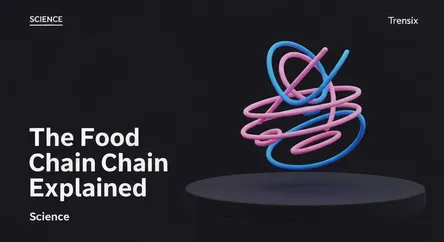Science
The Food Chain Explained

Discover the food chain, the natural flow of energy in an ecosystem from producers to consumers. Learn why this fundamental concept is so vital.
What is it?
A food chain illustrates how energy is transferred from one living organism to another within an ecosystem. It starts with producers, typically plants or algae that create their own food through photosynthesis. These are eaten by primary consumers (herbivores), which are then eaten by secondary consumers (carnivores or omnivores). Further links in the chain are called tertiary consumers. Each step is known as a trophic level. When organisms die, decomposers like bacteria and fungi break them down, returning nutrients to the soil and restarting the cycle. This linear sequence shows a single pathway of energy flow, while interconnected food chains form a more complex food web.
Why is it trending?
The concept of the food chain is a cornerstone of ecological education and is gaining renewed attention due to growing environmental concerns. Discussions around biodiversity loss, climate change, and pollution highlight the fragility of these systems. Events like mass species extinction or the spread of invasive species directly disrupt food chains, causing cascading effects. Furthermore, the bioaccumulation of toxins like microplastics and pesticides in food chains is a major research and public health topic, showing how pollutants become more concentrated at higher trophic levels.
How does it affect people?
Human survival is intrinsically linked to stable food chains. Agriculture, fishing, and forestry are all managed ecosystems that we depend on for food and resources. When a food chain is disrupted, for example by overfishing, it can lead to the collapse of a fishery, impacting food security and local economies. Pollution can contaminate our food sources as toxins travel up the chain. Understanding food chains is crucial for conservation efforts and sustainable resource management, ensuring the planet's health and our own long-term well-being.